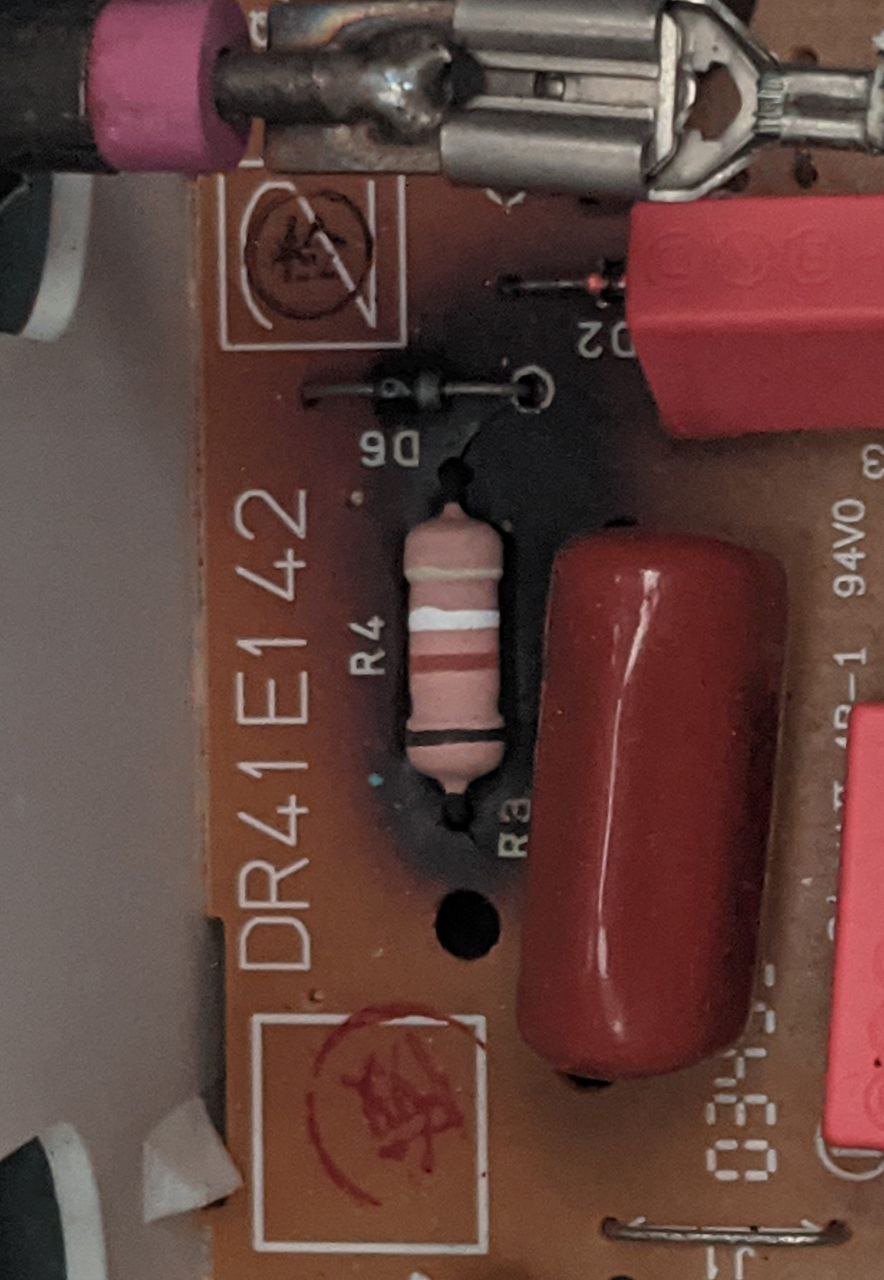this post was submitted on 04 Jul 2023
28 points (100.0% liked)
Ask Electronics
3335 readers
2 users here now
For questions about component-level electronic circuits, tools and equipment.
Rules
1: Be nice.
2: Be on-topic (eg: Electronic, not electrical).
3: No commercial stuff, buying, selling or valuations.
4: Be safe.
founded 1 year ago
MODERATORS
you are viewing a single comment's thread
view the rest of the comments
view the rest of the comments

It looks like 1GΩ (black-brown-white gold). But that doesn't sound likely unless you have a very high voltage bread maker.
If we treat the black band as discolored-brown, and read it the other way, we get (yellow - white - brown - brown) which is 490Ω and closer to your measured value. I wouldn't rule out (yellow - white red - brown) either at 4.9 kΩ, although that doesn't match closely to your measurement.
A good question is 'why did the resistor burn?'. If I didn't know why, then I would assume that replacing it will just result in it burning again, although maybe not immediately.
Thanks! I'll try replacing it with a 490 ohm resistor and see if it works again.
The element in the bread maker looks like it came loose a bit and made slight contact with the internal metal housing. I wonder if that caused the resistive element to sink more current than the PCB was designed for, burning out the resistor.
That sounds like a possible fail state. Also shitty design. It should use a resettable thermal fuse or something to detect faults without parts burning.
Consider maybe adding a fuse to the design?
You'll need a fairly high wattage resistor. That one looks like maybe 1W but it might be more.